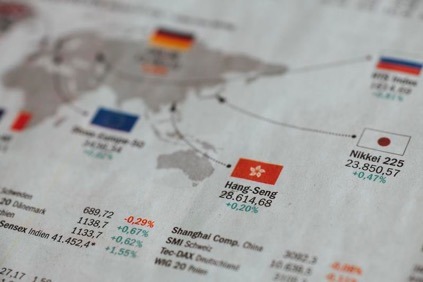What Forms of Trading Are Most Affected by Market Sentiment in 2020?

Anyone with a rudimentary knowledge of financial trading will likely be aware of the importance of market sentiment. In a nutshell, market sentiment is a term used to describe how investors generally feel about an anticipated price change, be it a change in stocks, shares, bonds, currency pairings, or anything in between.
Regardless of whether market sentiments are grounded in truth, they have a more significant impact on financial markets that almost anything else. People pay attention to how investors feel, as they are widely considered to be authorities on economic matters.
That means that if investors are feeling bearish about a certain company or sector and pulling all of their money out of it, then others will do the same, ultimately leading to real-world losses for that company or sector. Market sentiment affects every element of the global financial markets, but some forms of trading are more directly affected and driven by it than others. Read on to find out which.
Covid-19 and Market Sentiment
Obviously, the biggest factor affecting market sentiment worldwide at the movement is the economic fallout from the Covid-19 virus, which has sent stock markets into freefall and prompted trillion-dollar stimulus packages. In many ways, the events of the first months of 2020 are a masterclass in how market sentiment impacts different markets. The economic slowdown sparked by Covid-19 has resulted in the stock market losing more value than at any time since the great recession, whilst government bonds, long considered a safe haven for investors, have seen their value rise significantly. The next few months will be hard to predict, but we know that the primary impact of Covid-19 on global markets is the uncertainty it generates. It is difficult to say when the economy will return to normal, and that uncertainty is exactly what investors hate the most.
Forex Trading
Perhaps one of the most closely affected sectors when it comes to market sentiment is the foreign exchange (forex) sector. Investors and traders regularly trade trillions of dollars worth of currency pairs (e.g. the US Dollar versus the Euro) every single day, in the hopes of making a profit on a price shift in the value of one currency relative to the other.
Since forex trading concerns national currencies, the economic outlook for the nations involved is the biggest indicator of market sentiment, and often has a huge impact on any price fluctuations. Real-world events always impact forex pairs. Consider how Brexit tanked the value of the British Pound relative to the Euro, or how a political dispute between the US and Turkey eroded the value of the Lira relative to the Dollar.
Nowadays, it is known that traders are looking to see just in details how keenly market sentiment affects forex can even set up a forex trading demo account to learn how developments can dramatically change prices in real time. Forex traders may also attempt to gauge market sentiment by consulting resources released by international organizations such as the World Bank or the OECD, both of which regularly provide updated information on economic outlooks for specific countries and regions. When it comes to forex trading, market sentiment should always be your first concern.

Source: Unsplash
Stocks and Shares
While stocks and shares are impacted by a wider range of factors, market sentiment is often the main thing that traders on Wall Street or Threadneedle Street tend to look out for. This is especially true when looking at the movements in the prices of shares of major listed companies.
Many traders use resources such as volatility indices to see how closely impacted a company’s value can be by market sentiment, while others check on CNN’s ‘Fear and Greed Index’ to get a general snapshot of how other investors are feeling about certain companies and markets. If market sentiment is feeling generally bearish, traders may decide to flee entire sectors en masse.
When that occurs, they will often redirect their capital into what is called safe-haven assets such as US Treasuries and gold, both of which are historically immune to negative market sentiment.
If the opposite is true and the sentiment is widely positive, investors will keep their money in many of the same listed companies, whilst also feeling comfortable enough to flock toward ‘riskier’ assets such as high-cap stocks, debt and equities, and junk bonds. Market sentiment can make or break a Fortune 500 company, so always keep an eye out and see if you can tell which way the winds are blowing.
Markets are fickle things. How people feel is often the greatest indicator of value. Any successful trader should learn how to detect patterns in market sentiment in order to get the jump on the rest of the market.


























Comments (0 comment(s))